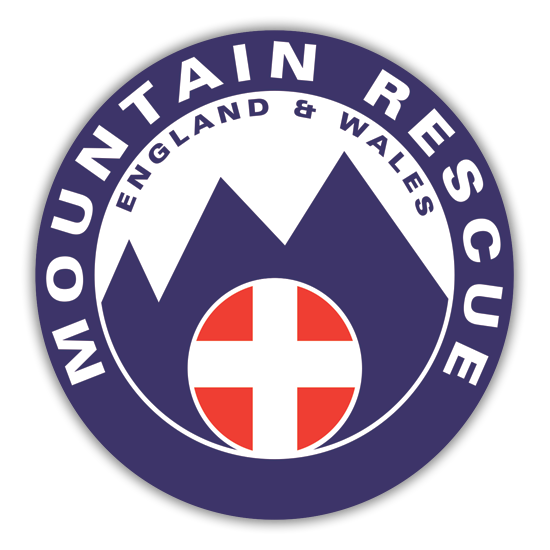Winter is coming…
… stay safe and enjoy the hills
Last weekend, social media lit up following an incident involving a group of walkers who set off at 7.15pm on Saturday evening to tackle Scafell Pike. They’d planned to be off the mountain in four hours but, at 2.15am, they were lost and in need of help.
Wasdale team leader Penny Kirkby pinpointed their position as near the top of Piers Gill, one of the team’s black spots and scene of two fatalities over the past twelve months (one involving a young lad without a torch). Working through what was left of the night, she guided the group down safely by phone and avoided calling the rest of the team out.
The previous Thursday, two ‘young adults’ had arrived in Wasdale at 3.00pm and set off for the summit with barely two hours to spare before darkness fell. By 6.00pm, with only the light of their mobile phones to guide them, they were lost. They had neither map, compass and torch, nor the necessary skills and experience to navigate their way through the danger areas. Nine members of the Wasdale team were involved in the four hour rescue.
Ironically, the weekend before, when the clocks fell back into winter time, a local TV and radio campaign had seemed to work. Urging walkers to ‘set out earlier tomorrow and be prepared – it could save your life’, Richard Warren, chairman of the Lake District Search and Mountain Rescue Association, was supported on-screen by his young grandson, Ronnie, ably demonstrating the use of a head torch. Not one Lake District team recorded a call-out in the days immediately following the clock change. Possibly a first.
Perhaps, given the two incidents five days later, it’s the people coming into the mountains from further afield we need to be focusing on and, indeed, work is underway to spread the ‘safety message’ with Adventure Smart Wales already up and running and an Adventure Smart initiative taking shape in the Lakes. So expect more on this.
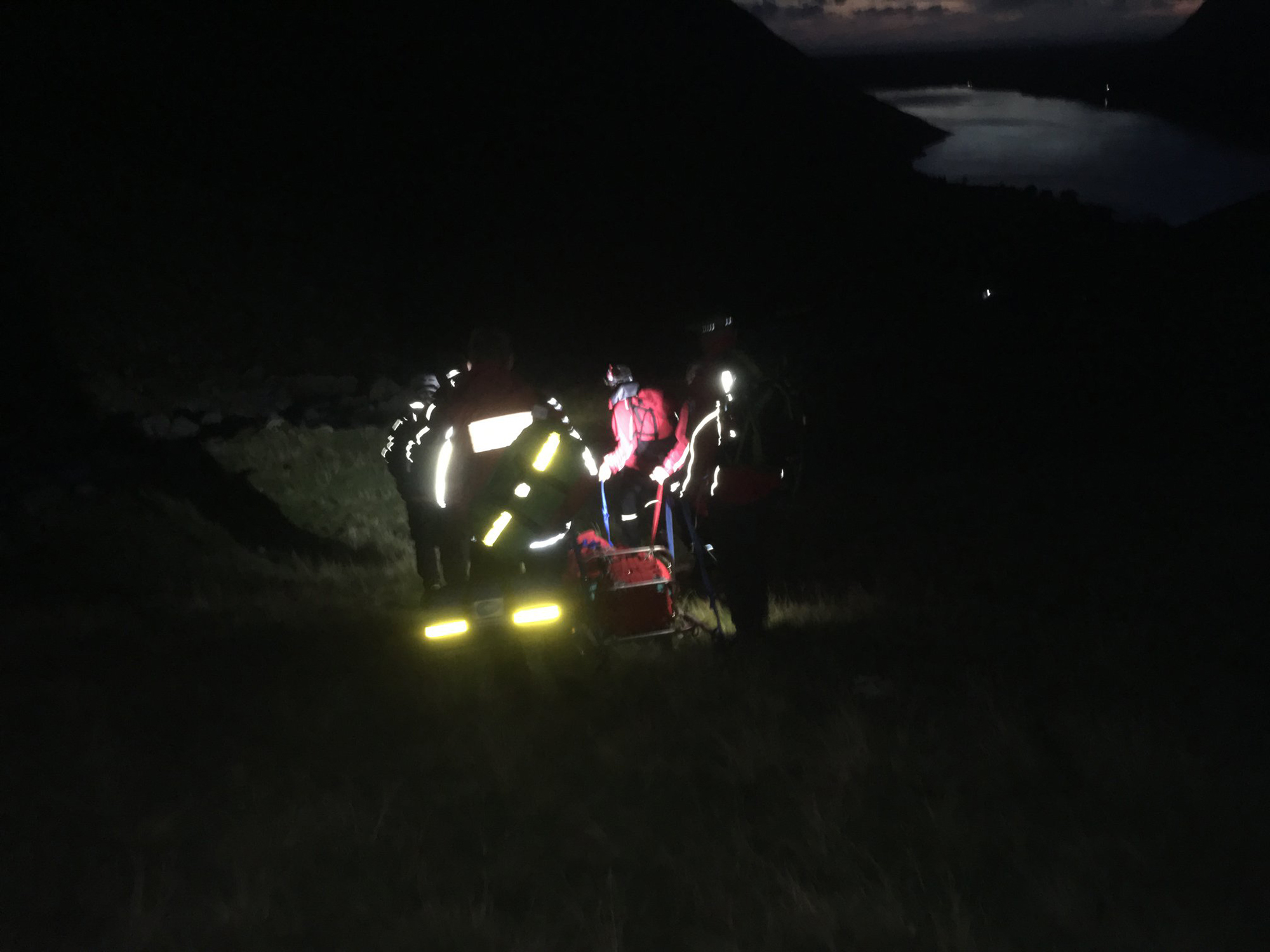
In the meantime, those two incidents raised a few discussion points.
1. Keyboard Warriors.
Mountain rescue teams tread an uneasy line between releasing details of their incidents, whilst expressing a level of frustration that a growing number of incidents may be ‘avoidable’, and then offering information about how hill goers might stay safe, without appearing to criticise the incident du jour.
Accidents can happen to anyone. The best prepared, the most expensively kitted-out, even the highly skilled. They even happen to people carrying maps, compasses and torches (although having a paper map and compass, torch, head torch and spare batteries in your kit and knowing how they all work together might just make life easier, prevent you getting lost and avoid you having to call us out).
Yet, without knowing the full picture of an incident, the keyboard warriors are off. As Simeon Leech, of Duddon and Furness MRT noted, in the September/October issue of Lakeland Walker, the ‘armchair judges’ below the line are ‘quick to condemn and blame casualties’, to criticise and evaluate. Others will counter with compassion, valuable tips and safety advice, but it often gets lost in the clatter.
‘So’, says Simeon, ‘if you see a team posting about an incident, why not simply share the post? Or make a comment which shares a time when you had an issue or a near miss, and what you did, or could do, to prevent it happening again?
‘No casualty, no matter how ill-prepared and inexperienced, has set out to cause a call-out: they’ve made a mistake, that’s all. Maybe a silly one in your opinion, but nevertheless a mistake. Being chastised seldom encourages a person to make the necessary improvements. Being given help and advice might’.
2. Summit fever.
If you’re a hill walker intent on completing your Three Peaks – and many of the incidents on Scafell Pike and Snowdon can be attributed to this particular challenge – know that, somewhere along the way, it’s gonna get dark.
But maybe you’ve paid your money, got your sponsors, even twisted your employer’s arm into match funding. Your local paper’s rooting for you, so is the charity you’re supporting but everything hangs on that big finish.
You’ve checked the weather forecast and it’s not looking good but you’ve come this far. Okay, some of the party are a bit tired too, starting to flag, but that’s part of the challenge, right? You can’t pull out now, lose face, let down your chosen charity… can you?
Well let’s think this thing through. Because whatever your motivation – be it raising as much cash as possible for a cause close to your heart, ticking another challenge off the bucket list or scaring your more sedentary mates with a stag (or hen) do they’re ego-bound to join – is it really worth risking yours and their wellbeing, maybe even lives, by not thinking things through? Properly?
And, if your motivation is simply raising funds, why set about doing that for one charity at the expense of another?
Every time a mountain rescue team member turns out, it costs their team money – running the vehicles, heating and illuminating their base, paying the phone bills, charging the torches, restocking the medical sacks, supplying kit. Not to mention the cost to the individual team member in terms of time. Which brings us to our next point.
3. It costs team members too.
One response following Sunday’s rescue came from one of the rescued party themselves, thanking Penny for ‘doing her job’ and getting them down. It’s a turn of phrase, we know, but it struck a chord.
The point is, Penny might have been undertaking a task she volunteered for that particular evening, but it’s not her ‘job’ to do what she did. And we think it’s worth making a distinction.
Like the rest of her mountain rescue colleagues across England and Wales, she is a volunteer. An unpaid volunteer. Every time ‘the pager’ beeps (we use the term ‘pager’ loosely because most teams now get called out through their mobiles), a team member gives up their own time with families and friends, interrupts their own working lives and hobbies – and sleep – to help fellow mountaineers. Largely because they appreciate how easy it is to get into trouble, how a simple slip can prove fatal. Sometimes from hard personal experience.
But it’s not their ‘job’. And it costs them money too, getting to and from base for incidents and making sure any items of personal kit are up-to-date.
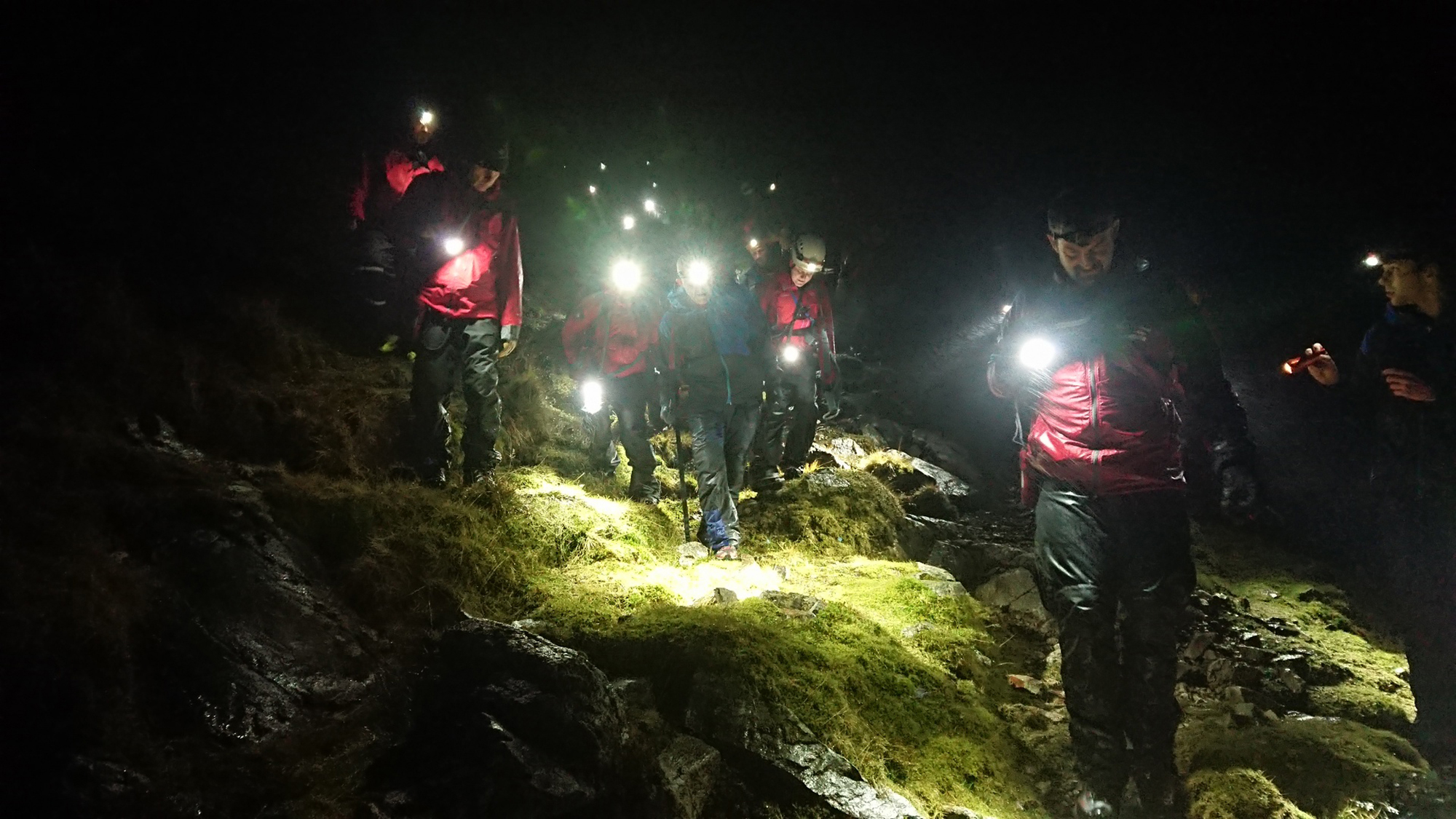
As they say in Wester Ross, ‘Winter is coming’*…
…weather conditions can quickly become more difficult and darkness falls earlier. It’s easier to get lost and lose time.
‘Venturing into the hills in bad weather without a good waterproof map and compass and knowing how to navigate is courting danger,’ says Richard.
‘Reliance on mobile phones is a recurring issue for teams across the country, particularly as phone signals in the mountains are unreliable. Traditional navigation using paper map and compass is an essential skill for all weather conditions and can be backed up with GPS technology.’
So, if you’re planning a trip to the mountains this winter, here’s our advice.
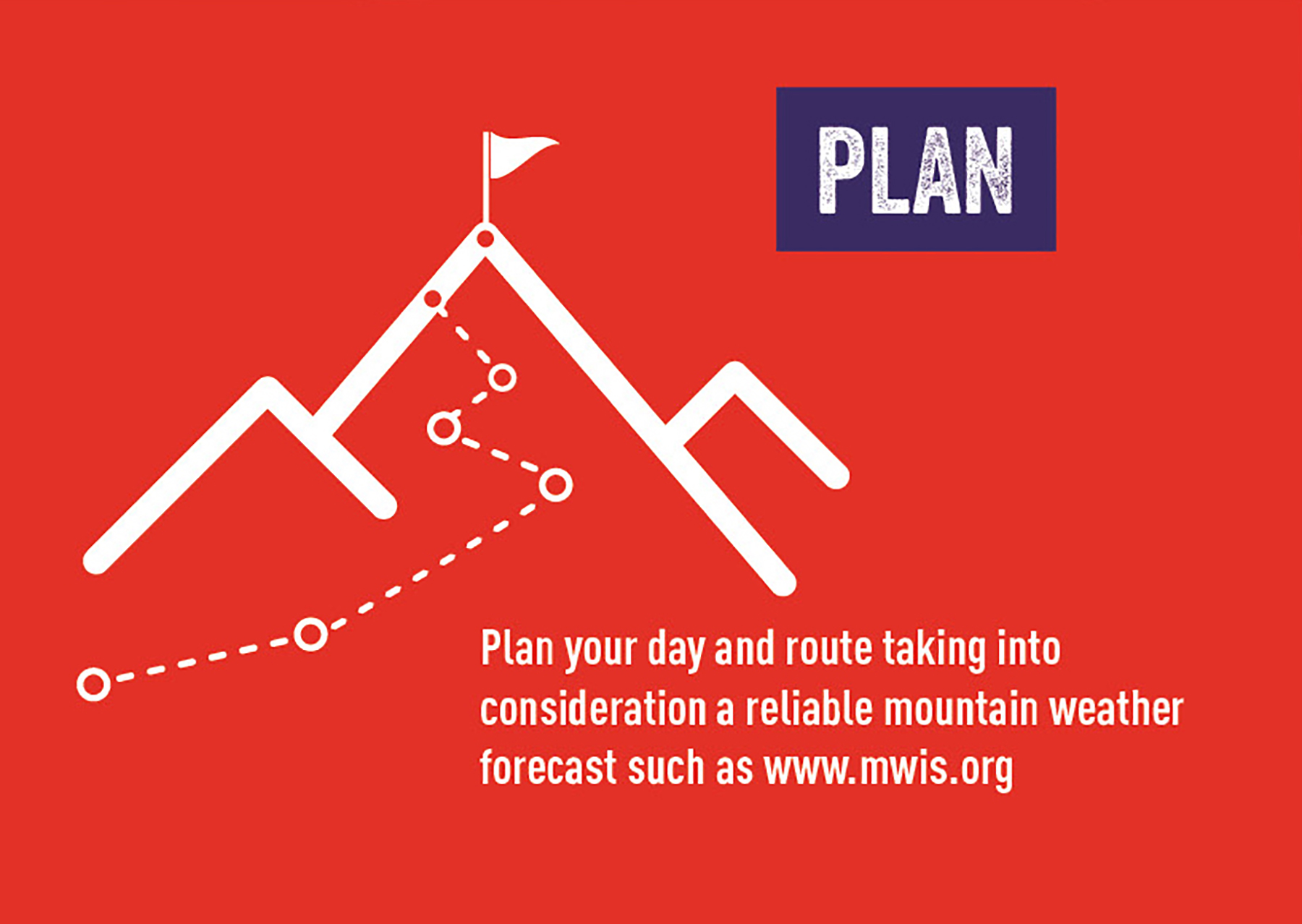
- Plan your day accordingly. Check the weather forecast for your route and get a mountain forecast if there’s one available and if there’s a storm brewing, stick to a valley route or think again.
- Make sure you have warm, windproof and waterproof clothing (and spares) – hat and gloves essential! Remember it’s usually colder and windier on the tops (and damper, if you’re in cloud).
- Head torch, handheld torch and spare batteries are essential too.
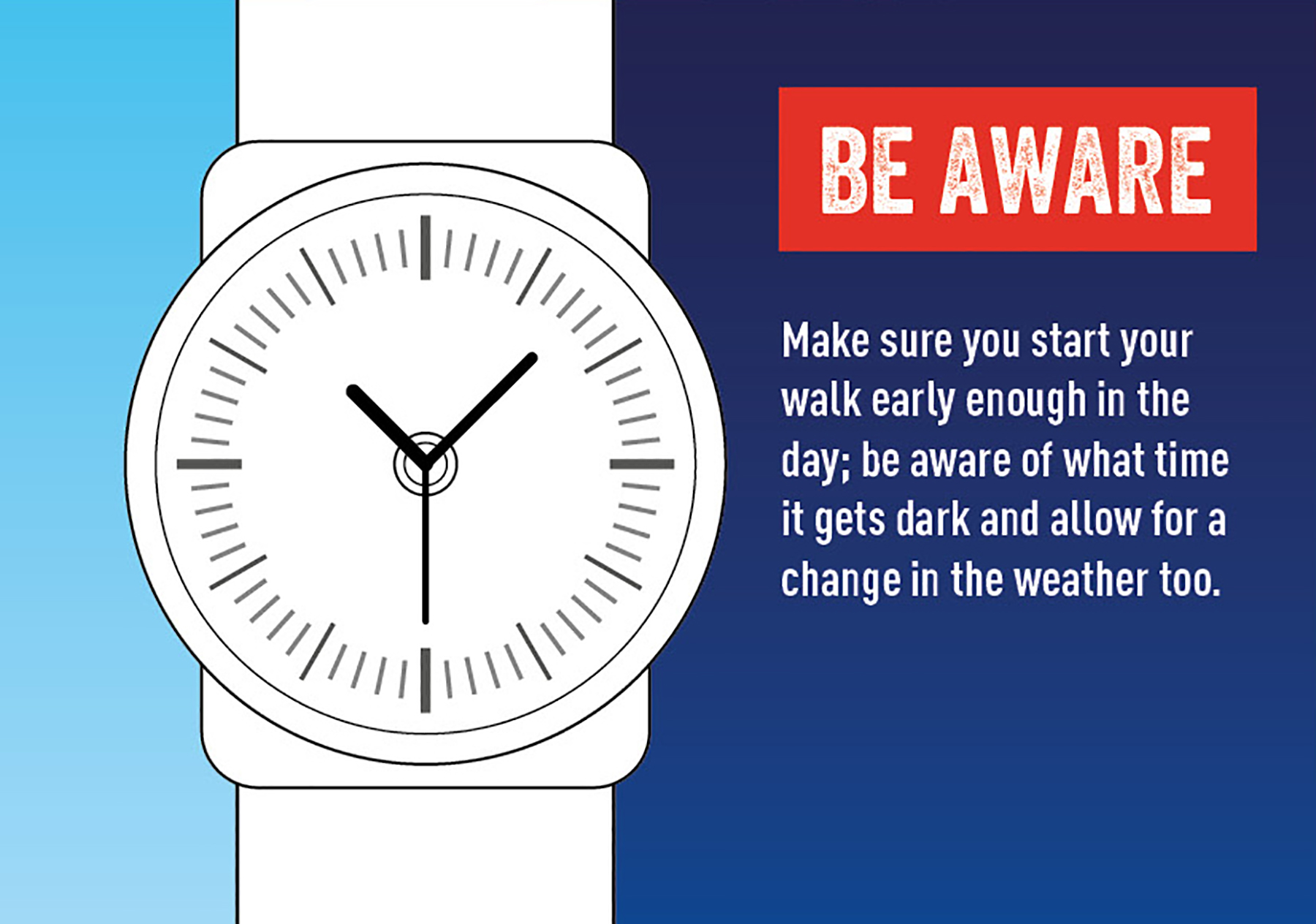
- Set off earlier in the day. Pitching up at 3.00pm might seem like a good idea when the sun is still glinting warmly through the windscreen but it soon goes dark. And in the mountains we’re talking proper dark. Black dark. No light pollution or street lamps lighting your way. More often than not, no moonlight either.
- Don’t rely on your smartphone alone for navigation – carry a map and compass and practise using them before you head uphill in the dark.
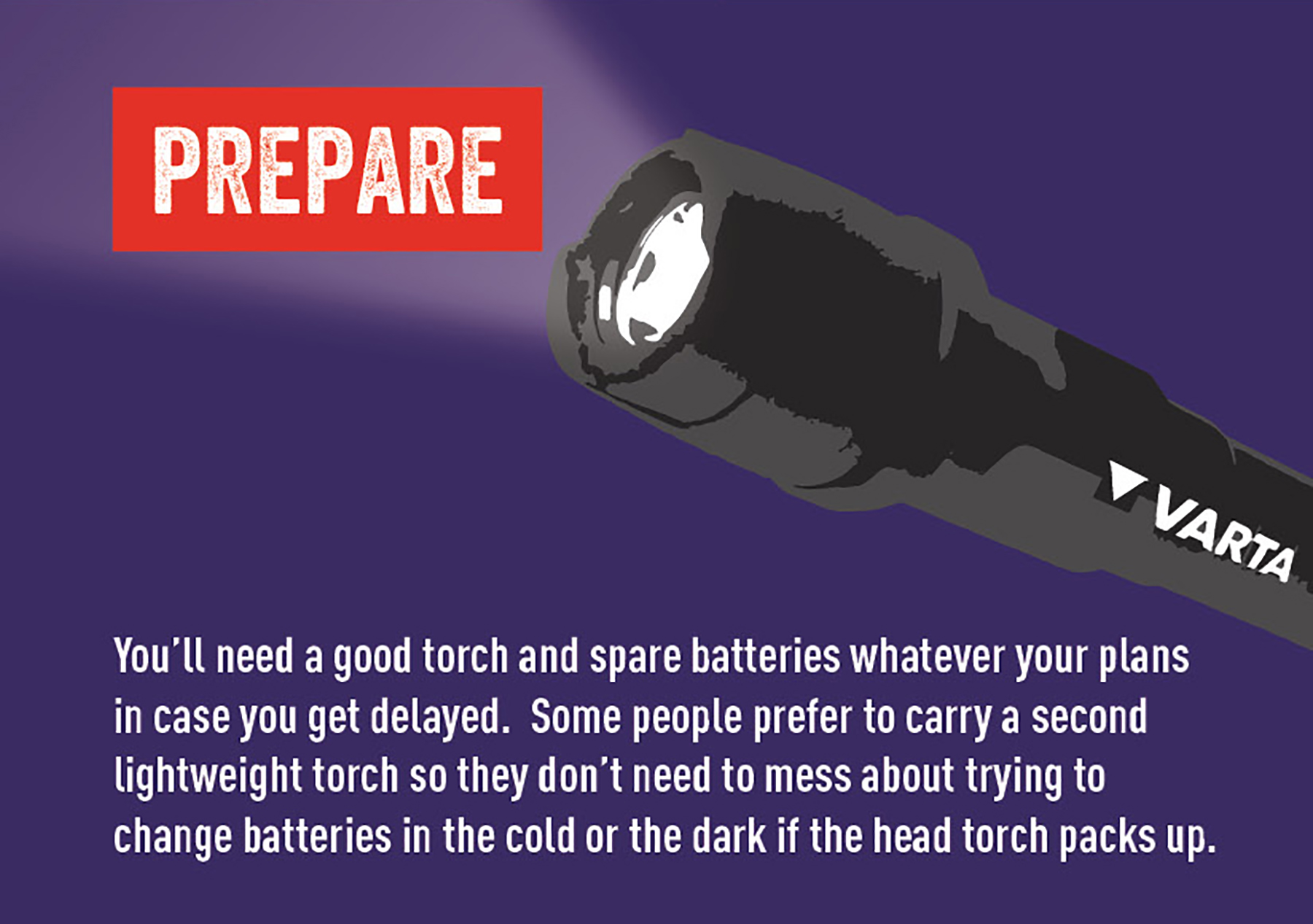
- Charge ALL the phones in the party before setting off – and maybe keep at least one for emergency calls and text messages only. Or think about carrying a portable battery charger.
- Keep together. Allow the slowest in the party to determine the pace.
- Take plenty of food and water so if you do get stuck you can keep your energy up and keep hydrated.
- Know your limitations. If you’re unused to navigating in the dark, it can be extremely disorienting. Teams spend hours and hours of training time accustoming themselves to navigating and operating in the dark.
Sometimes, the bravest decision is to turn around and go back. Those peaks will still be there another day. And, who knows, your sponsors might still support your charity, proud to know that you rose to the challenge for a good cause but also recognised that changing conditions might put you and your party at risk.
Like we said at the top, enjoy your time in the hills but stay safe!
*Apologies to anyone who didn’t get the Game of Thrones reference – we couldn’t resist.
